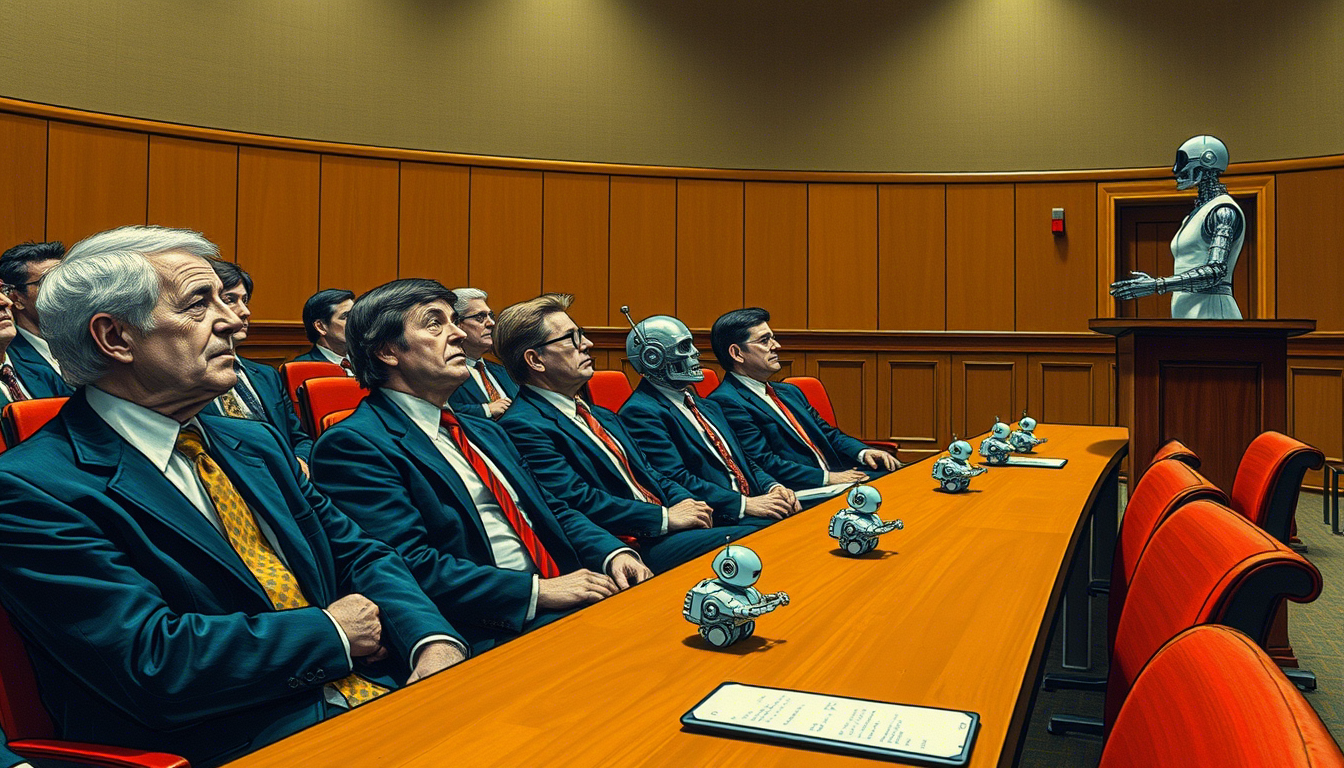The legal profession in the United Kingdom faces an unprecedented shake-up as proposed legislation threatens to impose life sentences on lawyers who cite non-existent, AI-generated legal cases in court proceedings. This dramatic development comes as artificial intelligence increasingly infiltrates legal practice, raising critical questions about professional responsibility and the integrity of the justice system.
The Proposed Legal Crackdown
Under draft proposals being considered by the Ministry of Justice, lawyers who knowingly or recklessly cite fabricated legal precedents could face charges of perverting the course of justice—an offense carrying a maximum penalty of life imprisonment. The legislation specifically targets the use of AI-generated "hallucinated" cases, where artificial intelligence systems confidently present fictional legal decisions as authentic precedents.
The proposed measures represent one of the most severe responses globally to the emerging problem of AI-generated misinformation in legal settings. Unlike other jurisdictions that have opted for professional sanctions or fines, the UK appears ready to treat the citation of fake cases as a serious criminal offense.
Growing International Precedent
The UK's consideration of criminal penalties follows a series of high-profile incidents worldwide where lawyers have been caught citing non-existent cases generated by AI tools. In the United States, attorneys Steven Schwartz and Peter LoDuca faced sanctions after submitting legal briefs containing six fabricated cases created by ChatGPT in a case against Avianca Airlines.

Similar incidents have emerged across multiple jurisdictions, with lawyers inadvertently relying on AI-generated content that appeared authoritative but was entirely fictional. A 2023 survey by the American Bar Association found that 51% of lawyers had used AI tools in their practice, yet only 18% had received formal training on their limitations and risks.
The AI Hallucination Problem
AI "hallucination" occurs when language models generate plausible-sounding but entirely fabricated information. In legal contexts, this manifests as the creation of convincing case citations complete with realistic case names, dates, and judicial decisions that never existed. These hallucinations can be remarkably sophisticated, including detailed legal reasoning and fictional judicial quotes.
Legal AI expert Professor Sarah Chen from Cambridge University explains: "AI systems are trained to produce coherent, contextually appropriate responses, but they lack the ability to distinguish between real and imagined legal precedents. They can fabricate cases that appear entirely legitimate to the untrained eye."
Professional Bodies React
The Law Society of England and Wales has expressed concerns about the proposed criminal penalties, arguing that professional sanctions and enhanced training would be more appropriate responses. Society President Rebecca Williams stated: "While we absolutely support maintaining the integrity of legal proceedings, criminalizing what may often be inadvertent errors risks creating a chilling effect on legitimate legal innovation."
The Bar Council has similarly warned that life imprisonment penalties could discourage lawyers from adopting beneficial AI technologies that could improve access to justice and reduce legal costs. They advocate for a more nuanced approach that distinguishes between deliberate fraud and genuine mistakes.
Implementation Challenges
Legal experts question how courts would determine whether a lawyer "knowingly" cited a fake case versus making an honest error. The proposed legislation would require prosecutors to prove that attorneys either knew the cases were fabricated or were recklessly indifferent to their authenticity.
This evidentiary burden could prove challenging, particularly given the sophisticated nature of AI-generated content. Defence lawyers could argue that their clients reasonably believed the cases were genuine, especially if they appeared in seemingly credible legal databases or AI-powered research tools.
The Path Forward
As the legal profession grapples with AI integration, the UK's proposed approach represents a significant escalation in regulatory response. While some applaud the tough stance on maintaining judicial integrity, others worry about stifling innovation and creating disproportionate penalties for what may be honest mistakes.

Conclusion
The UK's consideration of life imprisonment for citing AI-generated fake cases signals a pivotal moment for the legal profession's relationship with artificial intelligence. While protecting the integrity of legal proceedings remains paramount, the proposed penalties raise important questions about proportionality and the need for comprehensive AI literacy training for legal professionals.
As this legislation develops, it will likely influence how other jurisdictions approach the intersection of AI and legal practice, potentially establishing the UK as either a cautionary tale or a model for maintaining judicial integrity in the digital age. The legal community must now balance embracing technological advancement with preserving the fundamental trust upon which the justice system depends.
SEO Tags: AI in law, legal AI, fake cases, UK legal system, AI hallucination, legal technology, lawyer penalties, artificial intelligence legal ethics, perverting justice, legal profession regulation
Target Audience: Legal professionals, law students, policy makers, technology professionals interested in AI regulation, and general readers following legal/tech news.
